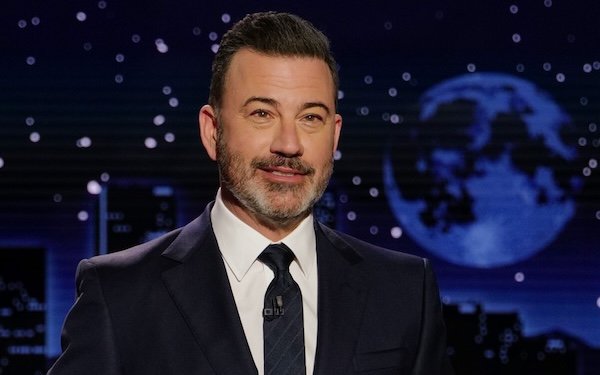
There has been much discussion around late-night talk shows moving to
digital video connected TV (CTV) platforms in the wake of Jimmy Kimmel's suspension by Disney-ABC Television -- and now, his return.
There are a number of reasons for the
projection, including financially strapped operations, sinking viewership, and restrictive over-the-air federal rules.
On the surface, it seems like the easy answer to everything that’s
wrong with traditional TV: go streaming.
We all know that financially, over-the-air platforms aren't up to snuff for real-time (or near real-time) late night live-looking shows.
CBS
claimed that its decision to cancel the “Late Show With Stephen Colbert” was that it was losing money.
One should also assume that “Jimmy Kimmel Live!” on ABC, and the
”Tonight Show with Jimmy Fallon” on NBC are at or near the same weak
financial levels.
advertisement
advertisement
It's also important to consider that TV networks still get billions of dollars in carriage from over-the-air broadcast fees, via owned and affiliate TV stations being
paid by cable TV operators, satellite pay TV, and virtual systems.
There is also value from having a regularly scheduled timeslots viewers are accustomed to -- the 11:30 p.m slot, for
example.
Currently, late-night TV shows make around $40 million to $60 million in national TV advertising per year, according to estimates.
While streaming fees are growing, they are
still not at the same level as broadcast -- even as the latter has been declining.
Politically and emotionally speaking, what is right for viewers now?
That's the question ABC
Television Network and Walt Disney are now mulling over -- even as Kimmel has returned. (But for how
long?)
Disney’s quick move to indefinitely suspend Kimmel was essentially asking for a timeout until they could figure out what to do.
Right now, from
all reports, it doesn't seem they have a longer-term answer yet. Some people who attacked Kimmel have made an argument that he should just apologize and that by doing so he would save the jobs of
hundreds of those staffers who work on his show.
We’ll see after tonight's show where that lands.
But we know it's not going to end here -- especially as the Trump
Administration's aggressive stance continues to impact huge parts of the news media.
Long-term, Disney can keep the show on the air and let Kimmel keep using his satire as TV comedians have
done for decades. That would put decision-making again in the hands of those major TV independent station groups that are affiliates of those networks.
What if Sinclair and Nexstar
Broadcasting decide they are will forever preemt “Jimmy Kimmel Live?” Financially speaking, this would severely hurt ABC, since those two TV station groups represent over 60 TV stations, a
huge piece -- 25% to 30% -- of ABC’s overall 230 plus affiliated TV stations.
They would force ABC to incur major losses and consider outright cancellation of the show.
So what
if everything were to go to streaming? Does that mean everything is now protective of anything the president does -- that he won't be able to attack late night shows?
The president's
long-standing behavior of filing lawsuits would be sure to continue.
And where would political satire go then? Traditionally, it would seem to go underground. But in this modern media age,
perhaps other digital platforms will rise -- as long as the internet-delivered business does not morph into pseudo-nationalized government owned structures.
Is it crazy to think that
Didn’t the Federal government just buy a 10% stake -- $8.9 billion -- in computer chip manufacturer/technology company Intel?
Could they do the same with media companies?